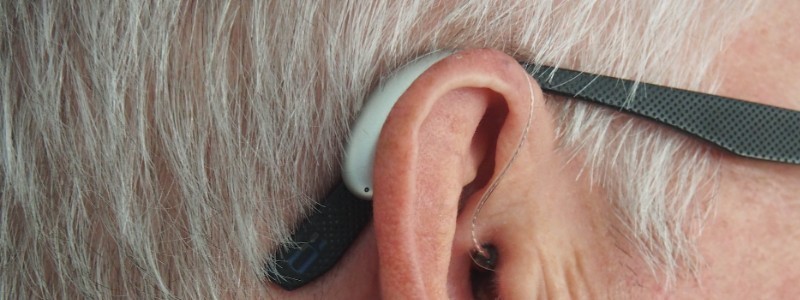
Head of Online Medical Content

Audiology Expert

Hearing Aids Versus Cochlear Implants
Hearing aids vs cochlear implants: Similarities and differences
Last Hearing Aid UK Update:
Overview
This article compares hearing aids and cochlear implants as treatments for hearing loss. Hearing aids amplify sound and are ideal for mild to moderate hearing loss, while cochlear implants are surgically implanted and suitable for severe to profound loss.
Hearing aids are non-invasive, more affordable, and customisable. Cochlear implants bypass damaged inner ear parts to stimulate the auditory nerve directly, offering clearer sound for those who don’t benefit from hearing aids. The choice depends on hearing level, lifestyle, and medical advice.
Not sure which option is right for you?
The distinction between hearing aids and cochlear implants isn't always clear-cut, and it's natural to have questions. If you're trying to work out whether hearing aids might be sufficient, or if a cochlear implant referral is needed, our audiologists can help.
We'll conduct a thorough hearing assessment and provide honest, independent advice about the best path forward - including NHS referral if appropriate.
Cochlear implants and hearing aids are both hearing loss treatments
What is the main difference between hearing aids and cochlear implants? Hearing aids and cochlear implants are two different types of hearing devices that can be used to improve hearing in individuals with hearing loss.
Both have their own unique set of benefits and limitations, and the best choice for a particular individual will depend on the specific needs and preferences of that person.
Are cochlear implants better than hearing aids? Hearing aids are usually the hearing solution for many with hearing loss. However, for people with severe hearing loss or for those who are deaf, cochlear implants may be a better hearing solution.
This article is written to help you understand the differences between the two and identify any similarities.
Hearing aids are worn and can be removed day to day
Hearing aids are small electronic devices that are worn in or around the ear and amplify sound to make it louder and easier to hear. An audiologist will diagnose a hearing loss, go through the various hearing aids available, and then program and fit them professionally.
They are designed to help people with hearing loss, particularly those with mild to moderate hearing loss, to better understand speech and participate in conversations.
However, there are power hearing aids available for people with more severe and profound hearing loss. Hearing aids can also be worn in one or both ears and come in a variety of Behind Ear and In Ear styles.
What to expect with hearing aids
Modern hearing aids are remarkably sophisticated devices that can handle a wide range of hearing losses. They're fitted and programmed specifically to your hearing profile, which means:
- You'll have a proper audiogram (hearing test) to determine exactly what frequencies and volumes you're struggling with
- The hearing aids are programmed to amplify precisely what you need, not just make everything louder
- Adjustments continue over several appointments as your brain adapts to the new sound input
- You can try different manufacturers and technology levels to find what works best for your lifestyle
The entire process is non-invasive and reversible. If you find hearing aids aren't providing sufficient benefit - which is relatively rare but does happen with very severe losses - your audiologist can refer you for a cochlear implant assessment through the NHS.
The benefits of hearing aids
One of the main benefits of hearing aids is that they are relatively non-invasive and easy to use. They do not require surgery and can be easily adjusted to suit the wearer's needs.
Hearing aids can also be programmed to filter out background noise and amplify specific frequencies, making it easier to hear in noisy environments. In addition, hearing aids are generally more affordable than cochlear implants.
The limitations of hearing aids and when the amplification is not enough
However, hearing aids have some limitations. They may not be effective for those with severe to profound hearing loss, as they rely on the residual hearing of the wearer to work properly.
Hearing aids may not be able to restore normal hearing, and they may not be able to provide the same level of sound quality as cochlear implants.
For example, in some cases, the hearing aid amplification might not be enough for those with more severe hearing loss. This may mean they are better suited to wearing a cochlear implant.
When is a cochlear implant the better option?
Generally speaking, cochlear implants are considered when:
- Hearing aids, even the most powerful ones, provide minimal benefit in speech understanding
- Your hearing loss is severe to profound in both ears
- You score poorly on speech discrimination tests, even with optimally fitted hearing aids
- Your hearing loss is due to auditory neuropathy (where the nerve pathways don't transmit sound properly)
The good news is that you don't have to figure this out on your own. A comprehensive hearing assessment will indicate whether hearing aids are appropriate or whether a referral for cochlear implant evaluation makes more sense. We conduct these assessments routinely and can provide clear guidance either way.
It's worth noting that cochlear implant surgery and devices are available through the NHS, though there are waiting lists. Private options exist but are significantly more expensive.
Cochlear implants are for profound hearing loss
Cochlear implants are a more advanced form of hearing technology that is designed for those with severe to profound hearing loss.
Unlike hearing aids, which amplify sound, cochlear implants bypass damaged hair cells in the inner ear and directly stimulate the auditory nerve, allowing the wearer to hear sounds that would otherwise be inaudible.
Related reading: What is profound hearing loss?
The benefits of cochlear implants
Cochlear implants are typically recommended for those who cannot benefit from hearing aids or who have limited or no residual hearing. They are surgically implanted by a surgeon known as an otolaryngologist.
They consist of two main components. These are an external processor that sits behind the ear and an internal implant that is surgically placed under the skin.
The external processor picks up sound, processes it, and sends it to the internal implant, which sends electrical signals to the auditory nerve.
One of the main benefits of cochlear implants is that they can provide a wider range of sound frequencies and a more natural sound quality than hearing aids.
They can also help those with severe to profound hearing loss to understand speech and participate in conversations more easily. In addition, cochlear implants can be used in both ears for even greater improvement in hearing.
The cochlear implant journey
If assessment suggests you might be a candidate for cochlear implants, here's typically what happens:
1. Referral to an NHS cochlear implant centre for thorough evaluation
2. Assessment by a multidisciplinary team including audiologists, surgeons, and speech therapists
3. Detailed discussions about expectations, risks, and potential outcomes
4. If approved, surgery is scheduled (usually a day case procedure)
5. Several weeks of healing before the external processor is fitted and switched on
6. Extensive rehabilitation and tuning sessions to help your brain interpret the new signals
The rehabilitation period is crucial and can take months to years. Unlike hearing aids, where benefit is often immediate, cochlear implants require your brain to learn an entirely new way of processing sound. Results vary considerably between individuals.
Following cochlear implant surgery, you'll work with specialist audiologists at the implant centre for programming and adjustments. Our role, if you're already working with us, is to provide support with any hearing aid needs for the other ear or to help coordinate your ongoing hearing healthcare needs.
Cochlear implants' limitations and the risks
However, cochlear implants have some limitations as well. Because they require surgery to be implanted, this carries some risks and potential complications.
Even though you can get cochlear implants from the NHS, if you choose to go private, they are more expensive than other hearing aids.
They also require more maintenance and care than hearing aids, as the external processor and internal implant need to be regularly checked and updated.
Summary
Are hearing aids or cochlear implants better? Both hearing solutions are successful for people with sensorineural hearing loss, which means their hair cells in the inner ear, nerve pathways from the inner ear to the brain, or both. This is the most common form of hearing loss.
What is the difference between hearing aids and cochlear implants? Hearing aids and cochlear implants are two different types of devices that can be used to improve hearing in individuals with hearing loss.
Hearing aids are a good option for those with mild to moderate hearing loss, and power hearing aids can support those with profound hearing loss.
Cochlear implants are typically recommended for people with severe to profound hearing loss, and if the hearing loss is due to auditory neuropathy.
The best choice for you will depend on your specific needs and preferences, and it is important to discuss the options with a hearing healthcare professional to determine the most appropriate solution for you and your hearing needs.
Why Choose Us?
- FREE Hearing Tests
- Best Hearing Aids and Prices
- FREE Aftercare for Life
- FREE Home Visits
- 200+ Local Audiologists
- 60 Day Money Back Guarantee
Hearing aids vs implants
Think your hearing has changed? We can support you locally
If you feel like your hearing has worsened, we advise that you check how well you're hearing with an audiologist as soon as you can.
For a free hearing assessment at home or in clinic, for any support, advice or hearing healthcare enquiries, please call us free on 0800 567 7621
Other hearing loss awareness articles you might like...
 Hearing aid stigma
Hearing aid stigma  The impact of diet on your hearing
The impact of diet on your hearing  How to tell if hearing loss is permanent or temporary
How to tell if hearing loss is permanent or temporary Our specialist service includes:
Do not spend hundreds of pounds without getting a second opinion from us.
Please call us on 0800 567 7621
 Not only are the prices great, but the service is fantastic! Many thanks to your team.
Not only are the prices great, but the service is fantastic! Many thanks to your team.Watch the NHS video about hoe cochlear implants work below
Other pages you might find useful
Common FAQs about hearing aids vs cochlear implants
Are hearing aids better than cochlear implants?
There is no better device, it is what solution suits the individual depending on the severity of the hearing loss. Hearing aids do not require surgery and suit those who have less severe hearing loss and some speech understanding. Cochlear implants need surgery and are suited for people with more severe hearing loss - either in one ear or both as well as poor speech understanding.
Can cochlear implants reverse hearing loss?
Cochlear implants give those who are deaf support in processing sounds and speech. However, like hearing aids, cochlear implants do not restore normal hearing.
How long can cochlear implants last?
Cochlear implants are designed to last forever. However, whilst it is still rare, these devices can fail.
Ask the Experts
6 Morton Lane
Walkwood
Redditch
Worcestershire
B97 5QA
Latest Launch
When we refer to a product as 'Latest Launch', we mean it is the latest to be released on the market.
New
When we refer to a product as 'New', we mean that the product is the newest hearing aid model on the market.
When we refer to a product as 'Superseded', we mean that there is a newer range available which replaces and improves on this product.
Older Model
When we refer to a product as an 'Older Model', we mean that it is has been superseded by at least two more recent hearing aid ranges.
